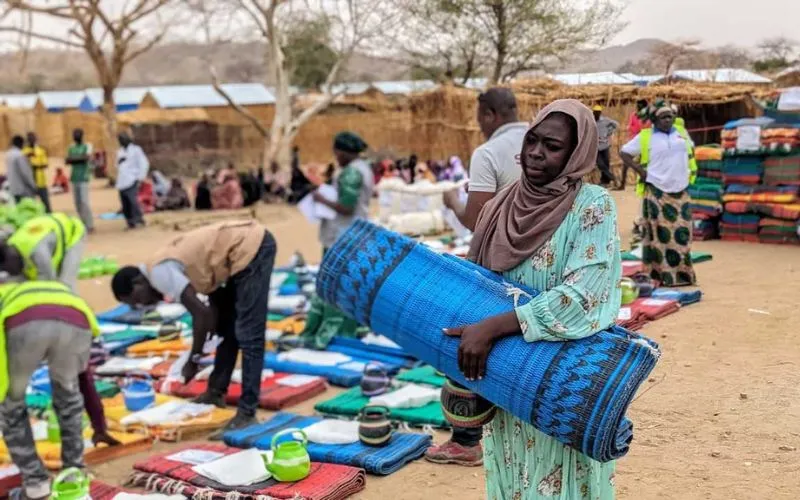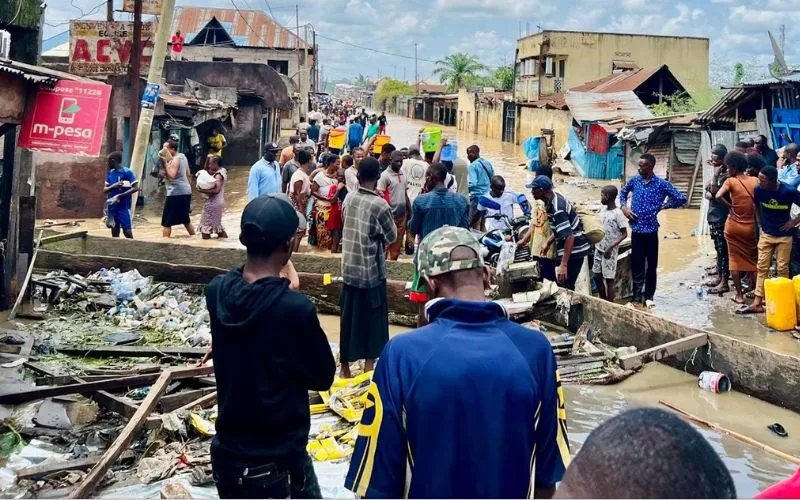While the United Nations and other aid agencies have used the figure of 20,000 confirmed deaths, the BBC News reports that cites studies indicates that over 61,000 people have lost lives in Khartoum State, where the violence started.
“In May, US special envoy for Sudan Tom Perriello said that some estimates suggested up to 150,000 people had been killed,” the November 2024 BBC News report indicates.
In their February 17 statement, the Church development agencies emphasize the severe impact of the conflict, including acute food insecurity, the spread of disease, and widespread sexual violence. They also draw attention to famine conditions in several regions, particularly among IDPs.
“The scale of displacement is staggering. More than 8 million people have been forced from their homes within Sudan, while nearly 3.5 million have fled to neighbouring countries since April 2023,” they say.
They add, “While host nations have shown extraordinary solidarity in welcoming refugees, their capacity to provide assistance is stretched to the limit. Without urgent financial support, their ability to sustain humanitarian aid will soon collapse.”
(Story continues below)
Lauding grassroots initiatives that provide critical relief including peacebuilding efforts by religious leaders and financial contributions from the Sudanese in diaspora, the agencies say, “the scale of the crisis demands greater international action.”
In the February 17 statement, the Country Director for Sudan at Norwegian Church Aid, Dirk Hanekom, says that the true frontline humanitarian personnel in the Sudan crisis are the host communities welcoming IDPs, mutual aid groups providing essential relief, community kitchens feeding the displaced, faith-based organizations offering shelter, and national NGOs mobilizing local resources to support those in need.
These groups, Mr. Hanekom says, “are doing extraordinary work with extremely limited resources.”
“Without immediate international support, this crisis will spiral even further out of control. We must act now to support and scale up localized responses,” he warns.
In the statement, the Church development agencies say that the international community must take immediate action to help the suffering people in Sudan.
“The time for action is now. The international community must step up to provide urgent funding, bolster diplomatic efforts, and stand with the local responders who remain the backbone of the humanitarian response in Sudan,” they say.
They further warn, “The consequences of inaction are severe, affecting millions of lives. We urge the international community to step up with increased financial support and ensure that aid reaches those who need it most.”
Beyond funding, the development agencies say that “decisive diplomatic engagement is essential to fostering an inclusive and peaceful resolution to the conflict—one that ensures local civil society, including women-led organizations, have a seat at the table.”
The Church development agencies say that the planned Senior Officials Meeting (SOM) in Brussels provides a platform to address the issues affecting Sudan.
“We strongly advocate for the inclusion of local NGOs and civil society organizations, whose direct knowledge and frontline efforts are vital in shaping an effective humanitarian response,” they say.
Silas Mwale Isenjia is a Kenyan journalist with a great zeal and interest for Catholic Church related communication. He holds a Bachelor’s Degree in Linguistics, Media and Communication from Moi University in Kenya. Silas has vast experience in the Media production industry. He currently works as a Journalist for ACI Africa.





